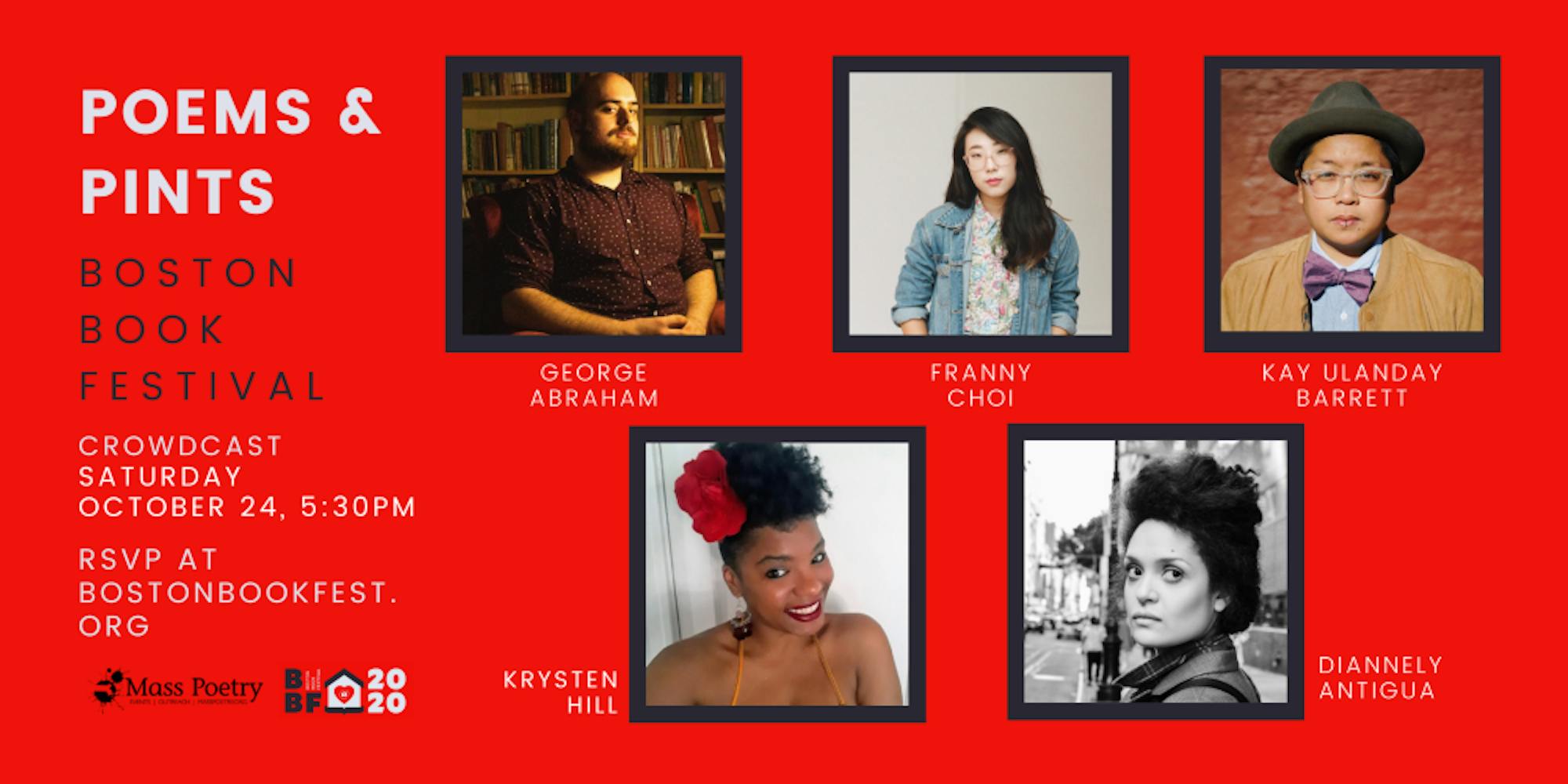The annual literary social gathering, Poems & Pints, has become emblematic of the Boston Book Festival. The purpose of Poems & Pints is for Boston-area poets to share and advertise their current work while further connecting the metropolitan poetry scene through an interactive social gathering.
The event was streamed on Crowdcast this year. Although this format limited the intimacy of the poetry readings, it still allowed for the poets’ impactful words to reach each listener. The ambiance of the room changed with the tonality of a poet's voice; cups clinked and strangers cheered with each presenter.
The event started when Kaylin Wu, MassPoetry's community engagement coordinator, introduced Krysten Hill, the night’s host. Hill is a respected poet currently teaching at UMass Boston.After a quick introduction of the event, Hill read her poem “Nothing” (2020). Her work discussed the physical, emotional and cultural silencing of minorities in their day-to-day lives, leaving viewers ready for the poems to come.
The second reading was by George Abraham, a renowned Palestinian American poet. Themes he explores in his work include Palestinian displacement, love, queerness and family. Abraham dedicated his work by beginning with the statement, “For my parents, for my ancestors, for all that cannot return.” His first poem personified Palestinian land by turning it into a human lover to highlight the complexities of existing in exile and the consequential divorce of body and self.
“What I am looking for is the opposite of forgiveness,” Abraham said in conclusion.
Diannely Antigua, a Massachusetts-born Dominican American poet and educator, presented next. She recently published “Ugly Music” (2019), but decided to recite poems not included in the book. The second poem Antigua performed, “Free Education,” was darkly humorous as it extracted meaning from mundane experiences. The way she writes is a contrast between a soothing classical voice and modern references.
“I’m almost 30, and I still think Bloody Mary is a game with a mirror,” she repeatedly recites to weave the poem together.
Through these simple, vivid moments she analyzes how the lessons she learned throughout her youth turned her into the person she is.
Third was Kay Ulanday Barrett, a poet, activist and educator whose work focuses on mapping systems of oppression in the United States. Barrett’s voice fluctuated by character, tone, changes of pitch and tempo. At times they sounded conversational, telling an anecdote or imitating a family member, but they would then fluidly shift back into the rhythmic meter of spoken poetry. Barrett’s second poem was about eating seafood with their aunties. Layered underneath the scrumptious descriptions was a celebration of culture and the powerful women who fuel it.
The last presenter was Franny Choi, a Koren American writer, poet, activist and known figure in the slam poetry scene. Her poetry focuses on her experiences as a Korean woman in a white society. The first poem she recited was “The Cyborg Watches a Video of a Nazi Saying Her Name to a Bunch of Other Nazis” (2019) based on the time someone sent her a video of Richard Spencer talking about her. In this poem she disempowers the men who are attempting to diminish her as a person by wittily describing them chewing on a robotic persona that represents her virtual figure. Although they have attempted to taint her figure in the virtual world, she takes the upper hand with this poem and fundamentally disempowers the men.
“[These poets] gave so much in their work, during a time when we don’t have that much to give,” Hill said in conclusion to the annual Poems & Pints.
It was a strange experience, sitting in silence once the event was over, staring at my computer screen, feeling alone yet empowered. The event was certainly reflective of the time, giving a hopeful spin to sometimes lonely or uninspiring existences.






